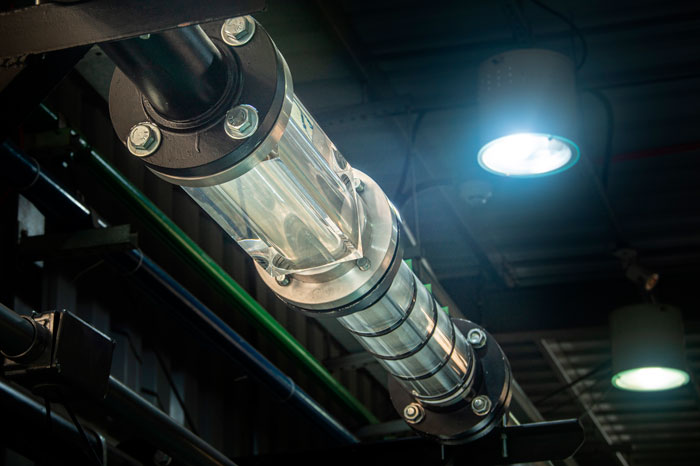
Fluid Flow plays a key role in the oil and gas industry. There are several problems related to Fluid Flow in different processes along the production chain. In general, multiphase mixtures of complex fluids are transported through different geometries, such as pipes, pumps, separators, equipment, devices, among others. The main problems involve the calculation of pressure drop, pipe sizing, flow pattern identification, definition of operational stability boundaries, production monitoring, among others.
In this scenario, the ALFA group has developed several basic and applied studies on the detailed characterization of fluid flows, and these are supported by development agencies and industries. The LABPETRO infrastructure was specifically designed to study fluid flow problems, featuring long horizontal and vertical lengths for piping assemblies.
